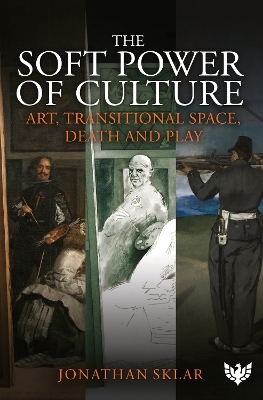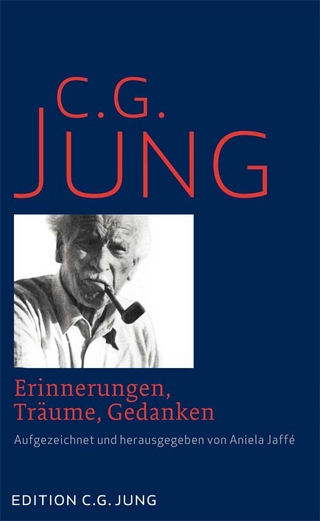
The Soft Power of Culture
Phoenix Publishing House (Verlag)
978-1-80013-248-1 (ISBN)
The book contains 26 colour illustrations, including 23 stunning artworks to deepen the appreciation of all the arts bring.
Totalitarian governments emerge from the same unconscious sadomasochistic structures that are found in the analysis of traumatised patients. Since the earliest times, art has been used as propaganda both to uphold the status quo and to subvert it. The arts as a whole connect with the individual and can open eyes and change minds. Culture is a valuable tool and one where the lack was felt keenly during lockdown when galleries, music halls, and theatres were closed. Culture begins in the child’s mind. For Winnicott, it is located in the potential space between the individual and the environment as the child’s mind develops its unconsciousness and capacities for play. And the ability to play, or not, is connected to the freedom to think own’s own thoughts or, by preference, to follow the leader.
Jonathan Sklar investigates these themes and more through twelve stunning chapters. These include discussions of Francis Bacon’s meditations on sadomasochism, linked to his fears of the rise of Hitler, and of today’s world with debate seemingly missing and, in its place, the political entrenchment of hatred. There is a discourse on Cézanne’s apples, always in process of falling, and a chapter on the adventuresome British painter William Tillyer, examining his art to understand the necessity for his creative drive. Sklar reflects on the analysis of a heroin addict, re-examines Freud’s seminal paper ‘A child is being beaten’ in relation to maternal sadism, meditates on psychosis and the true self, and considers the origins of sadomasochism and early trauma in the treatment of a schizophrenic woman. A chapter of ‘early Covid writings’ includes contributions from Endre Koritar, Victoria Hamilton, Philip Hewitt, Danielle Knafo, Drew Tillotson, Marcelo N. Viñar, and Wang Qian, and explores emptiness and holding on to creativity. The Bloomsbury Group and the early evolution of independence in the British Psychoanalytical Society is the focus of the penultimate chapter, and the book ends with thoughts about dancing bears – discussing our present-day problems of inner and outer reality in individuals and in societies.
Reinforced with playful appearances by Velázquez, Goya, Klee, Picasso, Arendt, Benjamin, Brecht, Huysmans, Shostakovich, Bollas, Bion, Forrester, Milner, and Enid Balint, another thread running through the book is of holding one’s nerve, being alive in the moment, and realising that enactment in clinical work can be another royal road to the unconscious. Yet another is how culture can speak to hard-core power: Picasso found a way of focusing his pain(ting) Guernica to evermore pin the fascist crime to the town destroyed by the Luftwaffe. Today’s crimes can also be addressed in such ways: Putin’s destruction of Ukraine, totalitarian states of mind conglomerating in all continents, and the crisis of global warming.
The emptiness of the missing from early traumatic states of mind often cannot be replaced because it was never present. Yet the gap can be filled with metaphor as in storytelling, in art, music, literature, and myths, as processes to sustain recovery and new beginnings. Read The Soft Power of Culture: Art, Transitional Space, Death and Play to open your eyes and change your mind on all that culture brings.
Dr Jonathan Sklar, MBBS, FRCPsych is an Independent training and supervising psychoanalyst of the British Psychoanalytical Society. Originally trained in psychiatry at Friern and the Royal Free Hospitals, he also trained in psychotherapy in the adult department of the Tavistock Clinic, London. For many years, he was consultant psychotherapist and head of the psychotherapy department at Addenbrooke’s and Fulbourn hospitals in Cambridge. As well as lecturing widely across the world, he has taught psychoanalysis annually in South Africa for over ten years, and termly in Chicago for ten years until 2018, as well as regularly across Eastern Europe and in Peru. From 2007 to 2011, he was vice president of the European Psychoanalytic Federation, with special responsibility for seminars for recently qualified analysts as well as the development of new analytic groups in East Europe. He was a board member of the International Psychoanalytical Association from 2015 to 2019. He is an honorary member of the South African Psychoanalytic Society and the Serbian Psychoanalytic Society, and established and chaired the Independent Psychoanalytic Trust. He works in analytic practice in London.
Contents
About the author
Acknowledgements
About the contributors
Prologue
Chapter 1
Stranger, visitor, metaphor
Chapter 2
Velasquez and the transmission of psychoanalysis
Chapter 3
Francis Bacon and the radicality of free association
Chapter 4
William Tillyer: against nature
Chapter 5
Psychosomatic reflections in the analysis of a heroin addict
Chapter 6
Revisiting “A child is being beaten”: reflections on maternal sadism
Chapter 7
Psychosis and the true self
Chapter 8
Violence, destruction and survival regression
Chapter 9
Early Covid writings
Chapter 10
Bloomsbury and the early evolution of British psychoanalysis
Chapter 11
Apocalyptic times and the missing debate
Chapter 12
Thoughts about dancing bears—psychoanalytic thinking to understand present-day problems of inner and outer reality
Postscript
References
Endnotes
| Erscheinungsdatum | 27.04.2024 |
|---|---|
| Zusatzinfo | 26 Illustrations, color |
| Sprache | englisch |
| Maße | 152 x 229 mm |
| Gewicht | 518 g |
| Themenwelt | Geisteswissenschaften ► Philosophie |
| Geisteswissenschaften ► Psychologie ► Psychoanalyse / Tiefenpsychologie | |
| ISBN-10 | 1-80013-248-4 / 1800132484 |
| ISBN-13 | 978-1-80013-248-1 / 9781800132481 |
| Zustand | Neuware |
| Informationen gemäß Produktsicherheitsverordnung (GPSR) | |
| Haben Sie eine Frage zum Produkt? |
aus dem Bereich


